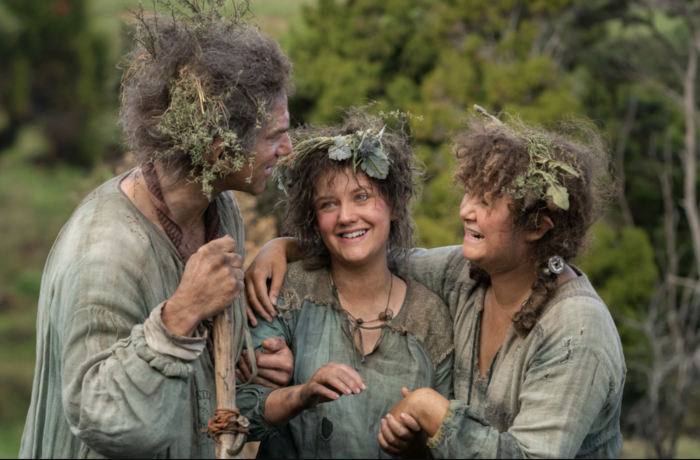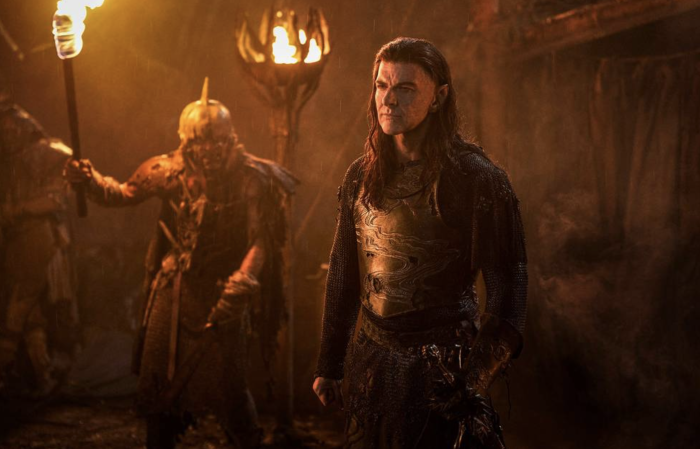‘The Rings of Power’ season 2 seeks to honor Tolkien’s everyday heroes, friendship

In a universe as vast and intricate as J.R.R. Tolkien’s Middle-earth, where epic battles and ancient powers collide, the most resonant tales often revolve around the smallest characters — and season two of Prime Video’s “The Lord of the Rings: The Rings of Power" continues this tradition.
In an interview with The Christian Post, Markella Kavenagh, who plays the Harfoot hobbit Nori Brandyfoot, and Daniel Weyman, who plays the enigmatic “Stranger” who arrived in Middle-earth via meteorite in season one, revealed that the forthcoming season of “The Rings of Power” once again honors Tolkien’s belief in the power of friendship and the courage to stand against overwhelming darkness.
According to Kavenagh, Nori, like Bilbo Baggins, Frodo and Tom Bombadil, represents Tolkien’s commitment to celebrating the "small" hero — the person who, despite their ordinary nature, stands against overwhelming odds with quiet bravery, loyalty and moral conviction.
“Nori is someone who’s been told ‘no’ so many times,” Kavenagh reflected, “that her dreams are too big, that her aspirations need to be shut down. And she’s just defied that. She’s really fought against it.”
Season two of the series will see Nori stepping into her purpose, no longer just a wanderer but a figure of destiny, bolstered by her bond with the Stranger, the actress said.
“She’s been given this opportunity to really fulfill those aspirations and find her purpose,” Kavenagh explained, emphasizing the role of friendship in this transformation.
The presence of The Stranger, along with her steadfast hobbit friend Poppy, creates a dynamic that highlights the importance of companionship in facing the overwhelming forces of evil. "The Rings of Power" season one finale revealed The Stranger to be an Istar, a powerful wizard meant to subvert Sauron's power in Middle-earth.
For Weyman, who portrays The Stranger, the character’s arc in season two delves deeper into the themes of power, temptation and the fragile balance between good and evil — another narrative thread that runs through much of Tolkien’s work.
“In season one, I was lucky enough to explore this idea of how seductive power can be,” Weyman noted. “The possibility of control, of bending the natural world to one’s will, is dreadfully seductive.” This struggle, he said, mirrors the eternal Tolkienian dilemma: the lure of power versus the call of humility and service to others.
Weyman’s portrayal of the Stranger grapples with these moral complexities, particularly as he navigates the newfound energy within him — an energy that could either protect or destroy Middle-earth.
“He’s got this really strong, foundational base of trust, love and friendship that he’s learned through the Harfoot community, especially through Nori,” Weyman said. Yet, with this power comes the challenge of using it wisely, without succumbing to the very darkness he seeks to combat, he added.
The Stranger and Nori's unlikely friendship illustrates the significance of accountability in the face of ethical uncertainty, Kavenaugh said, adding: “It just goes to show how amazing it is to have solid friendships that really ground you, and hold you accountable for your mistakes and lack of judgment.”

Season two of "The Rings of Power" will premiere on Aug. 29 and will be available in multiple languages to audiences in more than 240 countries and territories. It follows the success of season one, which was watched by 100 million viewers globally.
Showrunners J.D. Payne and Patrick McKay previously told CP that the forthcoming season centers on the villainous Sauron's resurgence and will delve deeper into the epic struggle between good and evil, thrusting even the most cherished characters into a growing darkness.
Additionally, new lands and characters will be introduced in the forthcoming season, showrunners teased, but will largely focus on the continuing stories of those introduced in season one, including Galadriel, Elrond (Robert Aramayo), Arondir (Ismael Cruz Córdova) Celebrimbor (Charles Edwards) Prince Durin (Owain Arthur), Disa (Sophia Nomvete), Elendil Lloyd Owen and Isildur (Maxim Baldry).
But while “darkness, horribleness and misery” are all parts of Middle-earth, so are hope and heroism — also central themes of season two, showrunners said.
“All across the map, even though there's great darkness, there are also heroes that are there as well,” Payne said. “In the end, it will be hopeful.”
The showrunners said what differentiates Tolkien’s stories from many popular epics is his dedication to redemption and the “earnestness” that comes with Middle-earth. A professing Christian, Tolkien saw darkness as providing the necessary opposition to make the heroes' journey compelling and meaningful.
"We're talking a lot about darkness and horribleness and misery, and that's all a part of it — Tolkien takes you there — but the other thing that we really love about Tolkien and this material is that there's hope everywhere too. We know there's an unnamed wizard heading out to parts unknown and exploring the huge parts of the map we've never seen before on screen or even in the books, only talked about in myth and rumor. Perhaps that destiny is going to tie back into the rise of Sauron over here," McKay said.
"In Tolkien, even the villains often have something redemptive at the center of it," Payne added. "Even Sauron, in his own twisted way, thinks he's healing Middle-earth. There's always a core there that isn't just darkness for darkness's sake."
Leah M. Klett is a reporter for The Christian Post. She can be reached at: [email protected]




























